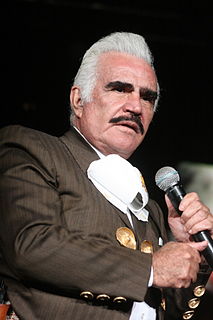A Quote by Laila Rouass
I want my daughter to grow up with memories of home-cooked meals, just as I did as one of seven children by Moroccan parents.
Related Quotes
In Holland, Moroccans automatically also have the Moroccan nationality even if they're born in the Netherlands, because the Moroccan law says that if one of the parents is Moroccan the children wherever they are born in the world are Moroccan as well.The Moroccan youth in the Netherlands between the age of 14 and 23, two-thirds of them have been arrested by the police at least once in their life.
Children grow rapidly, forget the centuries-long embrace from their parents, which to them lasted but seconds. Children become adults, live far from their parents, live their own houses, learn ways of their own, suffer pain, grow old. Children curse their parents for their wrinkled skin and hoarse voices. Those now old children also want to stop time, but at another time. They want to freeze their own children at the center of time.
Sometimes I'll say, "I wrote that book," and the person will look at you as if you're really strange. One time that happened to my daughter on a plane. She was sitting next to a girl who was reading one of my books and my daughter said, "My mother wrote that book." And the girl started to quiz my daughter, asking her all sorts of questions, like what are the names of Judy's children and where did she grow up. My daughter thought it was so funny.
My daughter is seven, and some of the other second-grade parents complain that their children don't read for pleasure. When I visit their homes, the children's rooms are crammed with expensive books, but the parent's rooms are empty. Those children do not see their parents reading, as I did every day of my childhood. By contrast, when I walk into an apartment with books on the shelves, books on the bedside tables, books on the floor, and books on the toilet tank, then I know what I would see if I opened the door that says 'PRIVATE--GROWNUPS KEEP OUT': a child sprawled on the bed, reading.
Sisters, while they are growing up, tend to be very rivalrous and as young mothers they are given to continual rivalrous comparisons of their several children. But once the children grow older, sisters draw closer together and often, in old age, they become each other's chosen and most happy companions. In addition to their shared memories of childhood and of their relationship to each other's children, they share memories of the same home, the same homemaking style, and the same small prejudices about housekeeping that carry the echoes of their mother's voice.
So many of my memories are generated by and organized around food: what I ate, what people cooked, what I cooked, what I ordered in a restaurant. My mental palate is also inextricably intertwined with the verbal part of my brain. Food, words, memories all twist together, so it was the obvious way to structure my life. Each memory of food opened up an entire scene for me, it was the key that unlocked everything.




































